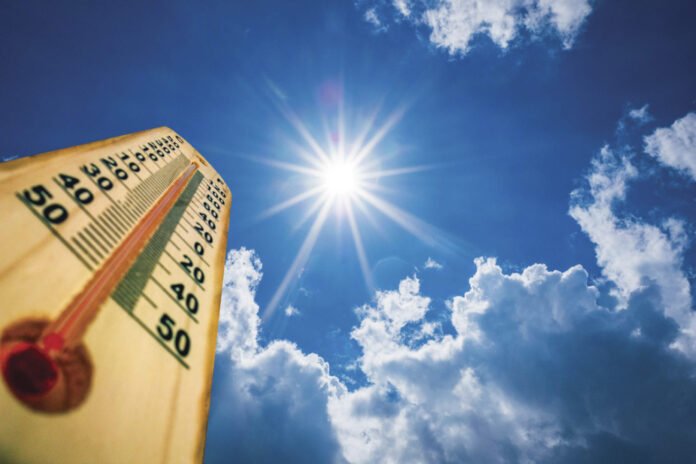HARLINGEN – While much of the United States was gripped by a short heatwave last week, south Texas residents know that there’s no end in sight when it comes to summer’s grueling temperatures.
With those high temperatures and humidity being common in the Rio Grande Valley through October, local residents should continue to take precautions against heatstroke when spending an extended amount of time outdoors, said internal medicine physician and Valley Baptist Medical Center-Harlingen Physician Adviser Dr. Christopher Romero.
According to the Centers for Disease Control and Prevention, heatstroke can be described as “the most serious heat-related illness. It occurs when the body becomes unable to control its temperature: the body’s temperature rises rapidly, the sweating mechanism fails, and the body is unable to cool down.”
With a wide variety of symptoms, Romero said local residents should closely monitor how they feel as they spend time outside as summer drags on, adding that heatstroke is especially dangerous because if left untreated, it can lead to organ failure and even death.
“Some of the signs are dizziness, weakness, confusion, nausea and vomiting. Patients may develop a high heart rate, begin breathing fast, and have low blood pressure. Depending on the patient and their health conditions they may have increased sweating and appear red or flushed; however some patients will become pale and have dry skin with heatstroke. Depending on how much water someone has been drinking they may or may not notice they are urinating less than normal,” he said. “An elevated temperature or fever is a major red flag. If someone has been exposed to the heat and develops these symptoms it is important to seek medical care right away.”
Romero said that while some people, including children, the elderly, outdoor laborers, and athletes are more susceptible to heatstroke, anyone exerting themselves for an extended period of time outside in high temperatures and humidity should be cautious.
“There are two type of heatstroke. Classic heatstroke tends to happen when we have very hot weather and children, the elderly, and people with health problems are at highest risk,” he said. “The second type is called exertional heatstroke. Exertional heatstroke can occur in anybody that works very hard in warm weather or conditions. This tends to happen in athletes training in the heat, farm workers, or those that work in the heat.”
Because completely avoiding strenuous activity in high temperatures is unlikely, there are precautions that local residents can take to reduce their risk of heatstroke, Romero said.
“People can reduce their risk of heatstroke by staying in air-conditioned buildings during our heatwaves, especially those with health problems, the elderly, and children,” he said.
“If people have to be exposed to the heat, they should avoid the hottest parts of the day, make sure they don’t over-exert themselves, drink plenty of fluids, and take frequent breaks. We all can help prevent heatstroke by being aware of the risk, and check in on elderly or sick family and neighbors in our summer heat waves to make sure they are OK.”
For those who suspect they may be suffering from the initial symptoms of heatstroke, Romero said the best remedy is to cease all physical activity and get out of the sun immediately.
“Applying a cool, wet cloth to the skin and fanning the victim can help. If they are awake and not confused, have them start drinking cool water slowly,” he said. “If someone is concerned that they have heatstroke, they should seek medical care. If they are confused, vomiting, or pass out call 911.”
About Valley Baptist Health System
Valley Baptist Health System is an 866-bed faith-based regional health system located in the Rio Grande Valley of Texas. It is focused on helping people achieve health for life through compassionate service inspired by faith. Valley Baptist extends many of its services beyond its facilities and into local communities, offering free screenings for the community, support groups and numerous educational opportunities. For more information, visit www.ValleyBaptist.net.





